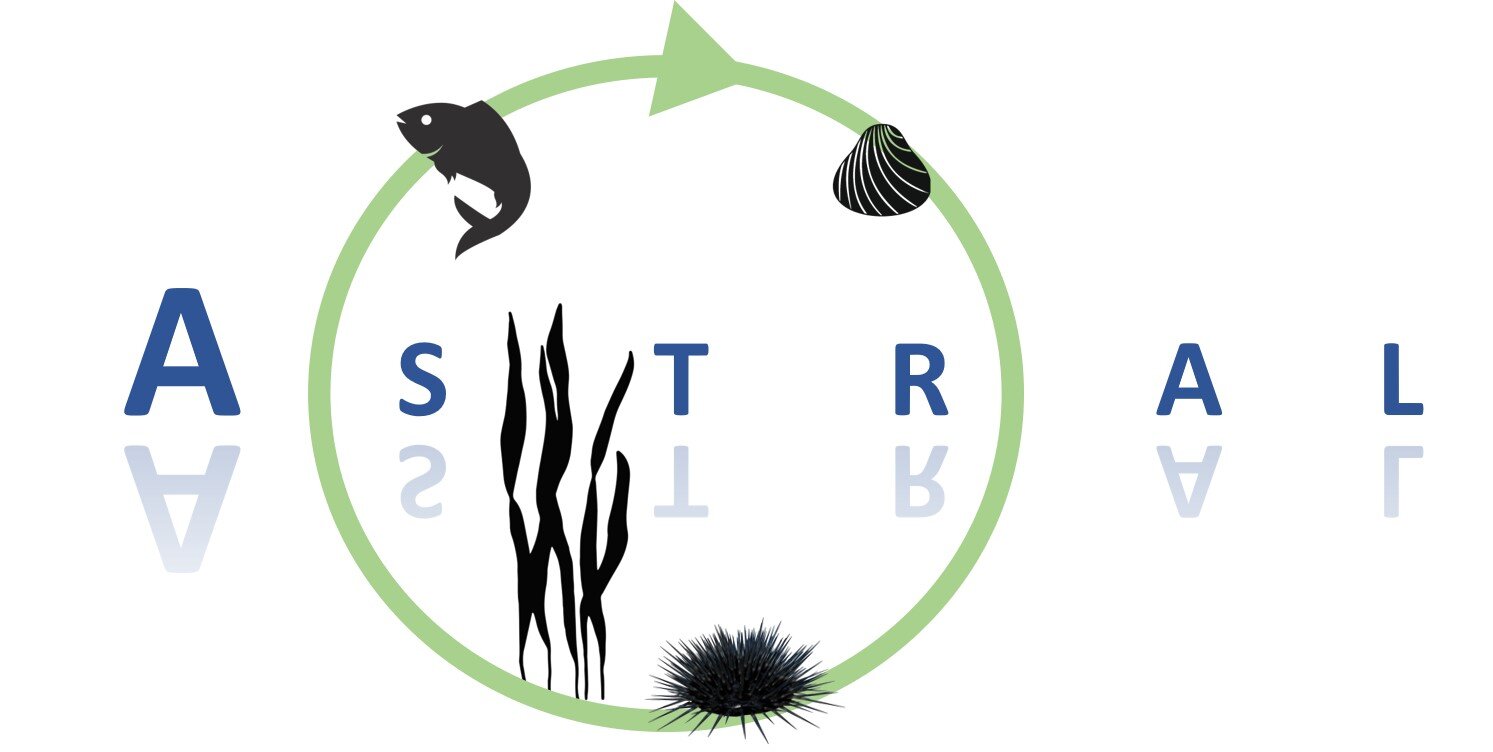IMTA Lab – Ireland
The Marine Institute operates a coastal research site in Cashel, Connemara, in Bertraghboy Bay, known as ‘Lehanagh Pool’. The site is the only licensed multi-species marine research site in Ireland and is 21.5 hectares in size. The site forms part of a national aquaculture research cluster and is an important part of Ireland’s marine research infrastructure.
The site is used to produce multiple species from different trophic levels synergistically and to mimic the natural ecosystem where different animals and plants/seaweed benefit from growing in proximity to each other. On site we have different types of algae growing - primarily large kelp species, we have two species of native scallop Great scallop (Pecten maximus) and the Clusheen/Variegated scallop (Mimachlamys varia), the spiny sea urchin (Paracentrotus lividus) alongside different types of fish - Atlantic Salmon and (Salmo salar) and lumpfish (Cyclopterus lumpus). The fish and urchins are fed species, fed using organically sourced feed, and seaweed for the urchins, the other species uptake the particulate organic waste and the seaweed uptakes the dissolved matter from the water column. This approach maximises the use of space by providing more produce within the same area, whilst mitigating environmental impacts through bio-remediation.
Lobster after 18 Months at sea
Marine IMTA – including fed species, organic extractive suspension feeders and organic extractive deposit feeders and inorganic extractive species
Juvenille Scallop
Our goal is to support and promote the concept of IMTA as a suitable and sustainable approach for aquaculture and to encourage the diversification of species, technology and practises used in aquaculture. We are still in the early days of ASTRAL but we aim to make any innovations developed replicable for other aquaculture facilities and to ensure the dissemination of lessons learned directly to the industry and end users.
Routine monitoring of a large number of parameters is carried out at Lehanagh Pool. Everything from water quality to weather, operating practices to fish feeding and fish behaviour is being carefully monitored. It is important for us to have a good understanding of these conditions to manage the system effectively and efficiently.
Authors: Pauline O'Donohoe, Researcher at the Marine Institute
Joanne Casserly, Researcher at the Marine InstituteIMTA site at Lehanagh Pool




